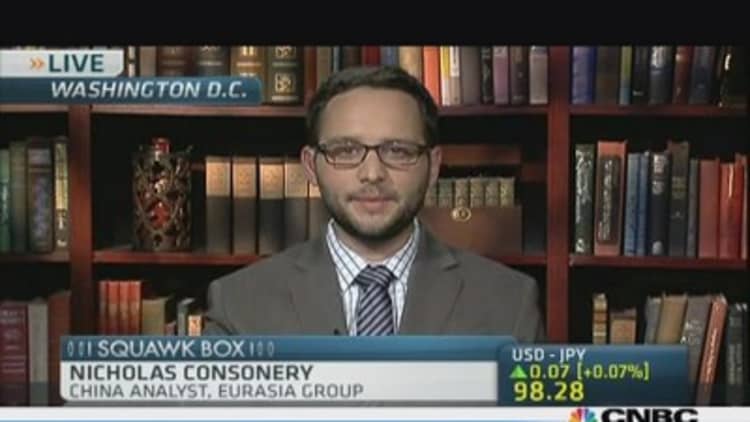The growing trade deficit between the world's two largest economies cost the U.S. $37 billion in lost wages in 2011, a study by the Economic Policy Institute (EPI) has found, and is likely to cost the economy more as the deficit widens further.
According to the study, 2.7 million jobs have been lost in the U.S. between 2001, when China entered the World Trade Organization, and 2011, the bulk of which were in the manufacturing sector. The report took 2011 as a snapshot of the cost of these losses and found that when these displaced employees were re-employed in non-trade-related industries, they lost an average of $13,504 per worker in 2011, creating a total of $37 billion in wage losses over the year.
Robert Scott, EPI director of trade and manufacturing policy research said the damage caused by the trade deficit was hurting the U.S. economy, especially America's working families.
(Read More: US blames China for breakdown in trade talks)
"Allowing the U.S.-China trade deficit to continue growing would eliminate many more jobs in manufacturing - a bedrock of the U.S. economy - and further erode the wages of U.S. workers," said Scott.
Last month the U.S. Commerce Department reported that the U.S.'s trade deficit with China rose to a record $30.1 billion in July, boosting the U.S.'s overall trade gap and prompting fresh complaints that China isn't playing fair.
Trade relations between the two economies have long been strained, due to quarrels over China's alleged currency manipulation and use of illegal industry subsidies, which the U.S. argues interfere with their manufacturers' means to boost exports and increase jobs.
For example, China was warned by the European Union in late August for giving unfair state aid to its domestic solar companies and giving them a competitive advantage, Reuters reported.
(Read More: US Presses China to Stop Growing Trade Secret Theft)
According to the EPI study, minority workers in the U.S. have been particularly hard hit by worsening trade relations with China. For all 958,000 minority workers who lost their jobs in 2011 as a result of the China trade deficit, wage losses totaled over $10 billion in the year or $10,485 per worker.

"At a time when we are still digging our way out of the recession and good jobs with fair wages are hard to find, policy makers should eliminate China's currency manipulation and other unfair trade practices, which will greatly reduce the trade deficit and will support creation of millions of good jobs in the United States," said Scott.
Scott Paul, president of the Alliance for American Manufacturing (AAM) said the U.S.'s trade relationship with Beijing is deeply flawed, and is costing the country some of its most valuable middle class jobs.
"Unfortunately, Washington remains obsessed with the fiscal deficit while ignoring the trade deficit. Until Congress and the Administration tackle our 'China problem,' we'll see more middle class jobs disappear, which also means less revenue for the Treasury," Paul said.
(Read More: Change in Negotiators Shakes Up US-China Trade Policy)
Paul added steps President Obama could take to rebalance U.S. trade flows include announcing a goal of cutting the trade deficit in half by the end of his second term, and achieving that by making balanced trade a pre-condition for any future trade or investment deals with China.
The study comes at a time when negotiations over the U.S.-led free trade pact, known as the Trans Pacific Partnership deal, or TPP, are said to be underway at the Asia-Pacific Economic Cooperation meeting in Indonesia.
China's involvement has been a contentious issue thus far, though in late May China's Commerce Ministry said it would study the possibility of joining the pact.
The overall U.S. trade deficit grew 13.3 percent to $39.1 billion in July - a major uptick a month after shrinking to its lowest level in nearly four years.
—By CNBC's Katie Holliday: Follow her on Twitter @hollidaykatie


